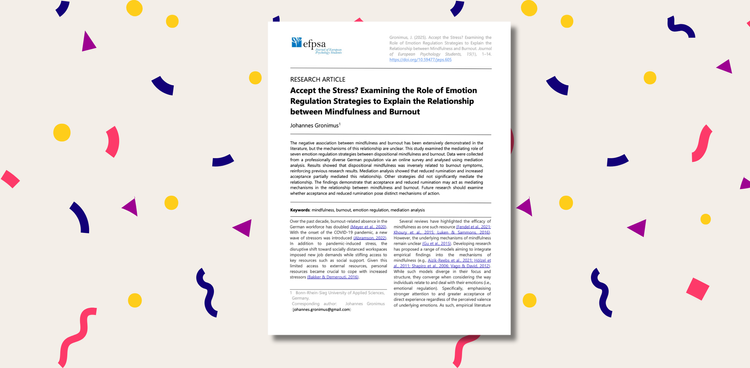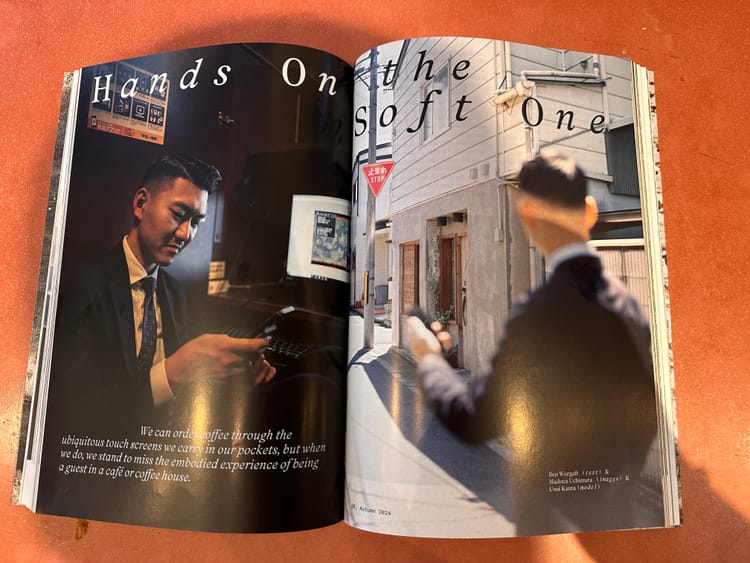The Fear of Being Ordinary

Here’s a quick thought experiment: Let’s say you could quantify the “goodness” of a human being. You’re at a 60. The average is 40. Feels pretty good, right?
Now, overnight a miracle happens that enlightens lots of selfish people. Realising that they were doing wrong, they change their ways and act as a force for good. The average is now 70. You’re at a 60 still.
How do you feel about yourself now? A little bit worse? Possibly. So, let's get this clear: The world has become a better place and you feel bad about it. Madness, right?
If this sounds like I’m trying to attack you personally, don't worry - I wasn't. This comes straight from my journal the day I came back from my 10-day meditation retreat.
Throughout the retreat, I kept assessing my own progress relative to others. Or at least that’s what I told myself. In reality, I was assessing it relative to my perception of their progress - which was literally built on nothing. We didn’t speak. I had my eyes closed 99% of the time. The teacher even warned us of this exact experience: “When you open your eyes, everyone will be sitting there looking as calm as a Buddha statue - be aware that you can't see within.” he said jokingly.
Far be it from me to take sensible advice, though. Instead, I kept putting myself down for (apparently) progressing slower than others. Never mind the fact that (as they told me afterwards) everyone was struggling just as much as I was. In my mind, they sat there like Buddha because they were calm as a Buddha - and I had my eyes open because I wasn't. So here comes the doubt.
“You’re not working hard enough. You’re working in the wrong way. You’re not concentrated enough. You’re too lazy. You’re not diligent enough.”
Put simply, you’re not enough. Instead of measuring and efforts compared to the point I started, I was measuring it compared to my made-up idea of other people’s progress. Their calm contentment stirred up my spirals. But what happened when they weren't thriving? You guessed it:
On those days that I was struggling heaps and I saw one of my fellow meditators walk around visibly upset and shaken, I felt relieved. “We’re going through it together!”, I thought, feeling validated in my struggles.
So let's get this straight: When others were (allegedly) doing well, I felt bad about it - but when I saw someone else not doing well, it sparked a good feeling? Madness indeed. How are we gonna lift each other up like that? How are we gonna grow together if another's growth is my mental downfall? If you’ve read any of my essays, you can probably tell where this is going:
This isn't about subjective progress on meditation retreat. It’s about life, man.

What I experienced first-hand is the mechanism of contingent self-esteem. This is the fancy psychological term for the belief that your worthiness as a human being depends on you reaching certain goals and standards. Sounds familiar?
But there’s an alternative: non-contingent self-esteem. Apparently, there are people to which the “issue of self-esteem is not salient [fancy way of saying ‘present in the mind’] largely because they experience themselves on a fundamental level as worthy of esteem and love” (Brown & Ryan, 2003). Must be nice.
If that’s you, congratulations. Genuinely, I’m happy for you. Go for a walk, meditate, do something fun - the next few paragraphs probably won’t make much sense to you. But for the rest of us mortals, trying to find that achievement that finally makes us worthy of existence, there’s some figuring out to do.
First, some good news. This belief - contingent self-esteem - has been found to be widely spread amongst highly passionate people (Here’s the Study). Good on us - we’re the passionate bunch!
The more mediocre news: This is because highly passionate people tend to have lower global self-esteem (→ overall, fundamental, unconditional self-esteem), so they seek validation in their achievements. Basically, the price we paid to be blessed with drive and passion was the belief that we’re only worthy if we make the absolute most of it.
These pesky non-contingent people, they don't have to look anywhere else to find their worth. It's already there, so what others do is irrelevant. To the contingent, worth depends on achievement. But this is where the madness arises: It's not your personal achievements, not your individual growth overcoming your individual struggles. Not the fact that you figured out how to speak a language. Not the fact that you managed to pull yourself out of that deep valley you were in earlier this year.
What matters isn't where you stand, it's where you stand relative to others. Feeling behind in life only works if there's a reference point (aka others) you can feel behind. You can only feel great about being in the Top 5% of your class because there are 95% of others that scored lower. Irrespective of your different starting points, circumstances and individual journeys - plain comparative achievement.
As long as I feel inadequate about myself, value comes easiest by comparison. To prove my value, I can just point at the people I’m performing better than. Extraordinary performance. Isn’t that valuable? In this game, someone getting better means I'm getting worse.
I believe the Fear of Being Ordinary is the fear of losing this easy metric of value. Ordinary is always a relative term - it doesn't exist without comparison. If that falls away, you actually having to find your worth somewhere else. Spooooooky, right? It's pretty obvious I have that fear - big time. But I feel there's merit in facing that fear. Why?
Well, let's see where the alternative takes us. What happens if we keep trying to justify our existence by comparative merit? To make that point, here's another passage from the journal entry we started with:
Sure, if you want to keep playing ego games, climb career ladders fuelled by fierce competition and define yourself by the number of people you’re superior to, others thriving is your downfall. Or is it?
Is the problem outside (→ the thriving of others) or inside (your attempts to find contentment in this pointless game). Those who succeed in these ego games, are they truly happy and content? Do they ever reach the top where they win every single comparison? Or do they just find a new reference point? Dedicating all their energy to the things others do and value?
To make it in those sorts of ego games, you have to dedicate yourself fully to certain activities that are determined not by you, but by the game. Is this a free, peaceful life? Or is this a constant race where you find yourself wasting your energy in competition with those you want to lift up? I think the answer is obvious.
To me, that's not particularly desirable. So instead, let's try the opposite. Assume you're ordinary by standards of comparative accomplishment. Face that fear. No really, imagine a world where you’re doing your thing, living life to the fullest - but others are thriving too. What a wonderful world. Still, you’re “ordinary” in terms of your accomplishments. Does that make your life worse in any way? Does that make you “ordinary”? Yes and no.
You can have ordinary levels of success, but there's no such thing as being ordinary. It's this weird idea that academic merits, salary packages or job titles could somehow define a human. That a lack of extraordinary proxies could make a human "ordinary". As if there weren't a million other facets to each of us.
Regarding the feeling of worthiness - this one's even more ridiculous. What sort of achievement could justify the gift of being alive? Is a 100% on a thesis enough? Would a Harvard Degree do it? A million-dollar business at 23? No matter how big, I can't think of a traditional achievement that seems enough. Now, is this because I haven't found the right achievement yet - or is the whole idea flawed? I'll let you decide.
Wow, this one was a rollercoaster. To be honest, I only learned about contingent and non-contingent self-esteem in the process of writing this piece. I was genuinely surprised to read that to some people, their worth is just a given. Something that isn't conditional. But the more I wrote about it, anything else seemed more and more absurd. I think these non-contingent people are on to something. Especially if we want to help each other out, this insecurity-driven competition just seems like a handbrake.
Good thing is: This is merely a belief. Contingent self-esteem is just a learned assumption. Somewhere along the way, we decided that this is the way things are. So the same way, we can unlearn it. Question it. Over time. Go ask a friend what they like about you. I'm pretty sure they don't care about your Uni degree. They value you for who you are. So why shouldn't you do the same?




Comments ()